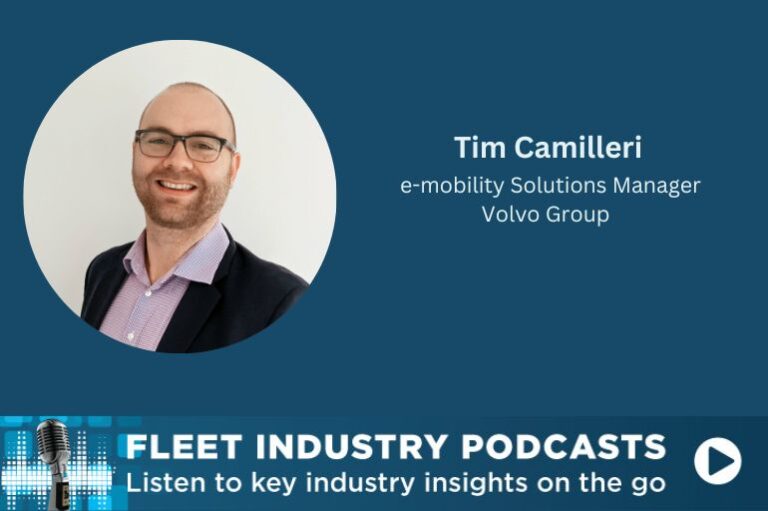Swedish truck maker Volvo unveiled its first electric prime movers in Australia at the Brisbane Truck Show. Tim Camilleri, e-mobility Solutions Manager at Volvo Group, stepped up into the cab of the electric FM to record this interview with our podcast host Caroline Falls.
“It’s exciting. It’s a new truck, it’s a cool truck,” said Camilleri.
Volvo imported the FM and the FH especially for the truck show which this year drew a record crowd. The FM has a load rating of 27 tonnes and the FH has a load rating of 44 tonnes and they are an indication of the future of Australian trucking in certain applications.
“We’re looking for sales starting in the coming months and these vehicles, in terms of the the applications, they’re single trailer and they pay themselves into the use cases of that metro delivery, and DC [distribution centre] to warehouse to store kind of operation,” said Camilleri, adding the use case is not dissimilar to how the electric trucks are used in Europe.
The beauty of the electric truck is how quiet it is and that poses some interesting questions.
“If this vehicle doesn’t make noise, what can we do with it? How do we optimise its usage even further above and beyond what a vehicle that would make noise does?” said Camilleri, and of course the answer is that curfews on deliveries in metropolitan areas put in place to address noise pollution while people sleep may be lifted.
So the electric vehicle is a real game changer, and not only for potential 24-hour operability in metro areas, or for well documented sustainability benefits, but also for attracting drivers from a wider field — including women and smaller framed men.
The technology in an electric truck means you don’t need to be a big strong man to shift gears and pull the steering wheel.
“It’s a really great point because it’s a critical industry. Having that diversity and people that can become truck drivers is critical for ensuring we get the number of people in to run it and vehicles like this, to be fair, having driven it myself, it is easy, it’s quiet, there’s no vibration, you’re not as fatigued at the end of the shift as you would be in another vehicle. It’s not as hard on your body.
“I think what it potentially can end up doing and we’d really like to see it happen is open up more diversity in driving.”
Camilleri said Volvo itself has signed up to the Paris Agreement to reach net zero by 2050 and as a strategy to meet that target the company will be bringing in more sustainable electric, hydrogen fuel cell and other reduced emissions vehicles and technologies to Australia as they are developed. Camilleri also talks about Hydrotreated Vegetable Oils (HVO) as a fuel.
“The summary for us is we are agnostic as to the energy source the vehicles run on as we develop more sustainable options.”
Camilleri also talks about collaborating with Daimler on hydrogen fuel cell technology, and some of the Australian government policy changes being called for regarding axle weights and truck body widths to stimulate electric truck adoption and how that’s impacted by current road surface conditions and standards.
Listen to the full podcast on Spotify or Apple Podcasts.






